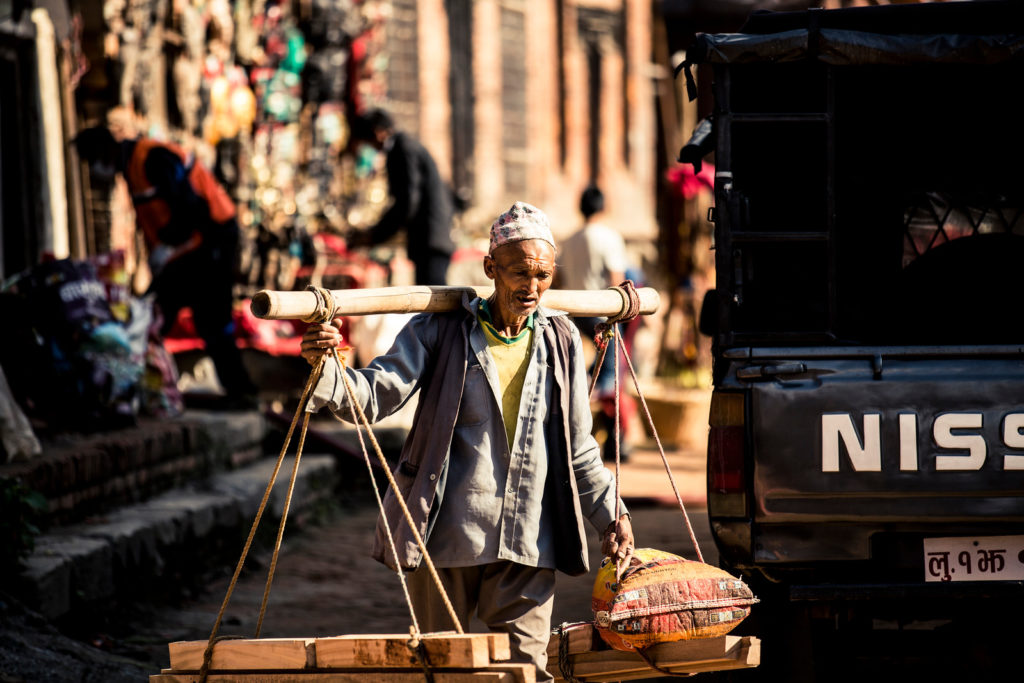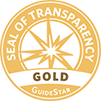The promise of higher earnings to send home from employment abroad entices thousands to leave their country every day across Bhutan, India, and Nepal. Whether due to lack of information or options, those who choose to migrate are often taken advantage of. A dishonest recruiter or agent might steal a migrant’s money, abandon a migrant in transit, or leave them trafficked to a country illegally. And to the surprise of many, 29% of all trafficking victims internationally are men.
Last month, we shared more details about how we’re tackling unsafe migration practices. In partnership with IREX, in 2018 we brought the Diyo program to Nepalis who were considering this journey abroad in search of better opportunities to bring income to their families, and as part of the Navigator program, it is funded by the Walmart Foundation. “Diyo” is the Nepali term for an oil lamp that symbolizes “lighting the way.” Through the Diyo Safe Migration program, we leveraged READ Centers as trusted community hubs across Nepal and provide potential migrants and their family members with the information and support they need to make safe choices, and the resources to seek recourse if exploitation occurs, to promote safe migration and reduce the risks of exploitation.
The Safe Migration Program is built on three pillars: resources, training, and outreach. As can be seen in the following examples, these three pillars work together to help potential migrants to make better decisions and support migrants who have already had problems with dishonest agents.

Scenario 1: What if I’m Cheated?
“I learned what to do in case you’re cheated, where to contact, what are the ways that make migration safe.” ~Nagendra Chaudhary
Nagendra Chaudhary, age 25, lived near the Jhuwani READ Center but had never really participated in the services offered there. Like many others, Narendra learned about a job from a recruiter who promised he could arrange Nagendra a visa, but only for a significant fee. He found a way to pay for the visa fee, but upon arrival in the new country, quickly realized that the visa provided by the recruiter was only a tourist visa, requiring him to return home without a job.
This bait and switch story is all too common in Nepal, from the type of visa issue he experienced, to the feelings of frustration and anger he felt at both being taken advantage of by a trusted recruiter, and the opportunity and money he lost because he couldn’t stay in the new country to continue working
Upon returning home, Narendra was even more determined to migrate abroad for work to start bringing income to her family. Independently, he began planning to try to secure the appropriate visa for that same job so she could return. Then, a friend told him about the Jhuwani READ Center’s Safe Migration program, and he immediately went to see what he could learn.
He says, “[I learned] what to do in case you’re cheated, where to contact, what are the ways that make migration safe.” He was especially interested to learn that “if cheated, a person can claim for compensation, and I will get my money back.” More informed and more educated about the labor migration process, Narendra now has more confidence that he can make better decisions about his journey to secure a better life for himself and his family in Nepal. After participating in Diyo program, Nagendra successfully went abroad to Malaysia is a safe and sanctioned manner.
We are happy to see this high level of information uptake and application across surveyed groups in Nepal. For example, among returned migrants whom we surveyed, 72% of those who participated in a Diyo program reported they learned to keep important documents at home when immigrating, and 54% reported having learned how to ensure an agent provides a valid receipt for any fees paid. Similarly, more than half responded that they will follow the legal process if they migrate again, based on what they have learned.
READ Global believes that these seemingly small, yet hugely impactful learning moments are part of our overall mission – to support people through their individual, family, or community’s journey for a more prosperous and dignified future. It’s heartening to see how a bit of outreach and information made a dramatic impact on his point of view, and one can imagine how he will go on to tell others about his experience, enhancing the reach of the Diyo program.
Scenario 2: A vision for a better outcome for the family
“The entire concept of safe versus unsafe migration was foreign to me.” ~Bindra Dhami
Bindra Dhami, age 25, and her husband had been considering migrating abroad for work for quite some time, having heard that working abroad is a chance to improve their lives. Given a lack of options for employment locally, Bindra had been constantly pressuring her husband to seek foreign employment, because he wasn’t earning enough in Nepal. She soon learned that they needed more information to make it happen.
While at her local READ Center, Bindra learned about the Diyo program. At a meeting about LEGAL migration, she learned about the importance of making the journey legally. For her, the benefits of legal migration were a revelation that completely changed her perspective on migrating for work. She realized neither she nor her husband had the right information about how to migrate safely or legally. In fact, the entire concept of safe versus unsafe migration was foreign to her, she said.
She went home and shared what she learned about safe migration with her husband, and after weighing the risks versus benefits, they’ve changed their plans and are taking their time to find the best way to go abroad legally and safely. Together, they now know they need to choose the right agent, collect appropriate documents required to migrate legally, and have a more informed approach about how to best make this journey successful for their family.
Families of migrants play an essential role in supporting safe migration, and they are impacted by the Diyo program in a number of ways, as Bindra was. For example, a full 69% of family members who received some form of Diyo programming said they have already implemented something they learned – and the most common things learned were the importance of keeping copies of official documents at the family home of the migrant in case they are lost or stolen in transit (84%), how to take a receipt from an agent after paying (75%), and whom to contact if there is an emergency (69%).
Across all surveyed respondents, including those who self-identified as returned migrants, as potential migrants, and as families of migrants, a massive percentage have already shared this information with others and told others about the program. READ Global, READ Nepal, and IREX plan to continue working together to provide safe migration support through the Navigator program in 2020 and offer it to more communities.



